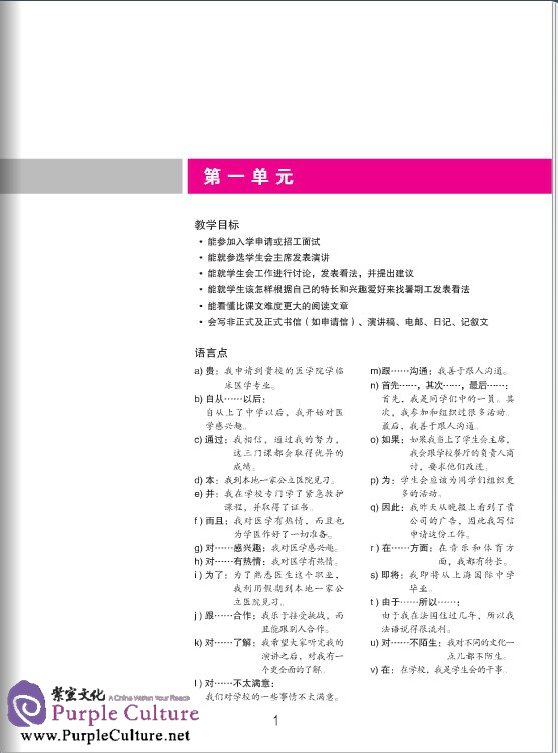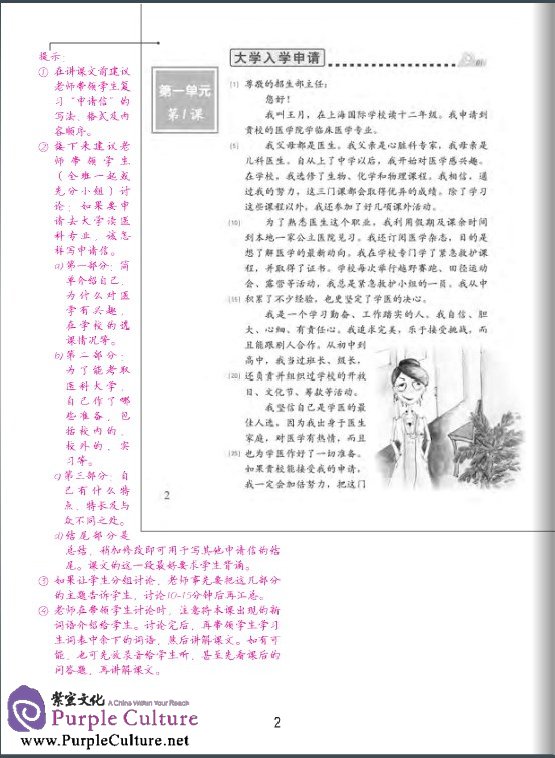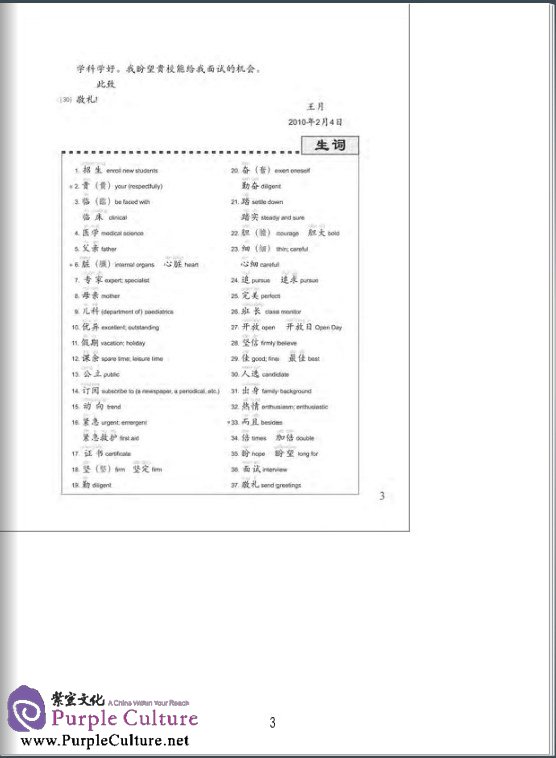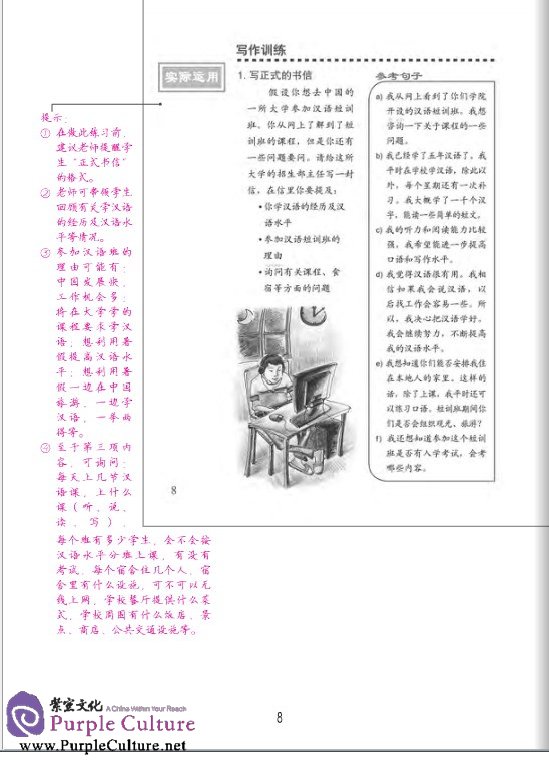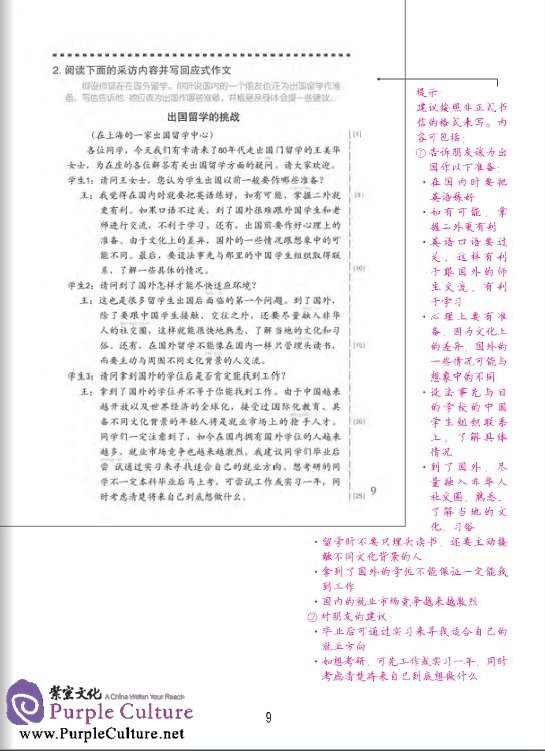Details
This is the teacher's book accompanying
Easy Steps to Chinese—Textbook 7, which can be used by teachers to prepare lessons. There are answers to most of the exercises in the textbook and supplementary materials for some exercises as well, which will provide teachers with more testing materials.
The teaching purpose and language points are listed at the beginning of each unit to help teachers focus on the key points when preparing or teaching the lesson and achieve the teaching purpose. To comprehensively test the students’ mastery of each unit and their ability of communication, the book provides unit tests of reading and writing, which are designed with reference to the test types in many other countries so that the results can be closest to the students’ actual Chinese proficiency and communicative ability. As for oral testing, teachers may use the “Oral Questions” in each unit review as reference questions to ask the students and test their speaking skills, or otherwise design some situations for the students to role-play, converse or discuss.
Sample Pages Preview
(在上海的一家出国留学中心)
各位同学,今天我们有幸请来了80年代走出国门留学的王美华
女士,为在座的各位解答有关出国留学方面的疑问。请大家欢迎。
学生1:请问王女士,您认为学生出国以前一般要作哪些准备?
王:我觉得在国内时就要把英语练好,如有可能,掌握二外就更有利。如果口语不过关,到了国外很难跟外国学生和老师进行交流,不利于学习。还有,出国前要作好心理上的准备。由于文化上的差异,国外的一些情况跟想象中的可能不同。最后,要设法事先与那里的中国学生组织取得联系,了解一些具体的情况。
学生2:请问到了国外怎样才能尽快适应环境?
王:这也是很多留学生出国后面临的第一个问题。到了国外,除了要跟中国学生接触、交往之外,还要尽量融入非华人的社交圈,这样就能很快地熟悉、了解当地的文化和习俗。还有,在国外留学不能像在国内一样只管埋头读书,而要主动与周围不同文化背景的人交流。
学生3:请问拿到国外的学位后是否肯定能找到工作?
王:拿到了国外的学位并不等于你能找到工作。由于中国越来越开放以及世界经济的全球化,接受过国际化教育、具备不同文化背景的年轻人将是就业市场上的抢手人才。同学们一定注意到了,如今在国内拥有国外学位的人越来越多,就业市场竞争也越来越激烈。我建议同学们毕业后尝试通过实习来寻找适合自己的就业方向。想考研的同学不一定本科毕业后马上考,可尝试工作或实习一年,同时考虑清楚将来自己到底想做什么。
